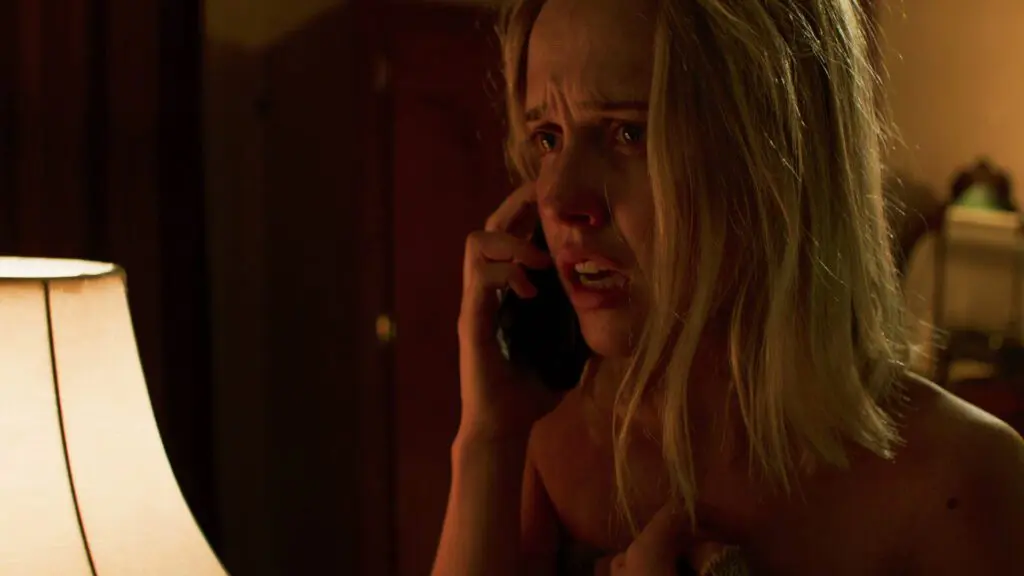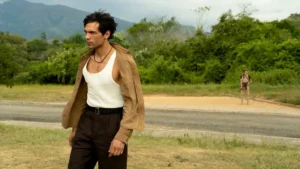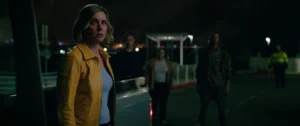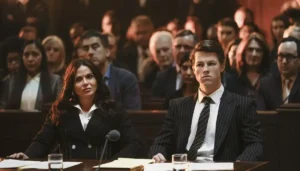Summary
Horror/psychological thriller about a young woman who takes a rest stop when her life is going downhill and struggles with the fresh start that she needs. Very effective nightmarish tone, but it felt like too familiar a story.
Bright Hill Road is the story of Marcy, going through an emotional breakdown either induced or accelerated by alcohol and trauma. The film opens with an office shooting which Marcy (Siobhan Williams) could/should have seen coming, as the HR officer; she’s then told to take some time out to sort out her life. She takes off in her car for California, hoping to find support in her sister, and breaks up her journey with a stop at the Bright Hill Road boarding house. It seems like it could be an ideal opportunity to sober up and shake off her funk before a fresh start. But the house and its proprietor Mrs. Inman (Agam Darshi) don’t give her much rest.
From her first night at Bright Hill Road, Marcy is tormented by disturbing visions and sounds, unable to tell if she is hungover, withdrawn, dreaming, or if there is someone playing tricks on her. Mrs. Inman knows she’s trying to quit alcohol, but there is wine regularly left in her room; banging and crying can be heard from other rooms while she’s trying to sleep. It doesn’t help that Marcy feels sick when she tries to go out for a breather; it also doesn’t help to find that the new guest Owen (Michael Eklund) has had odd experiences of his own. Williams plays Marcy like a natural, swaying from one mood to another as the surreal few days (and matching music) mess with her already troubled head.
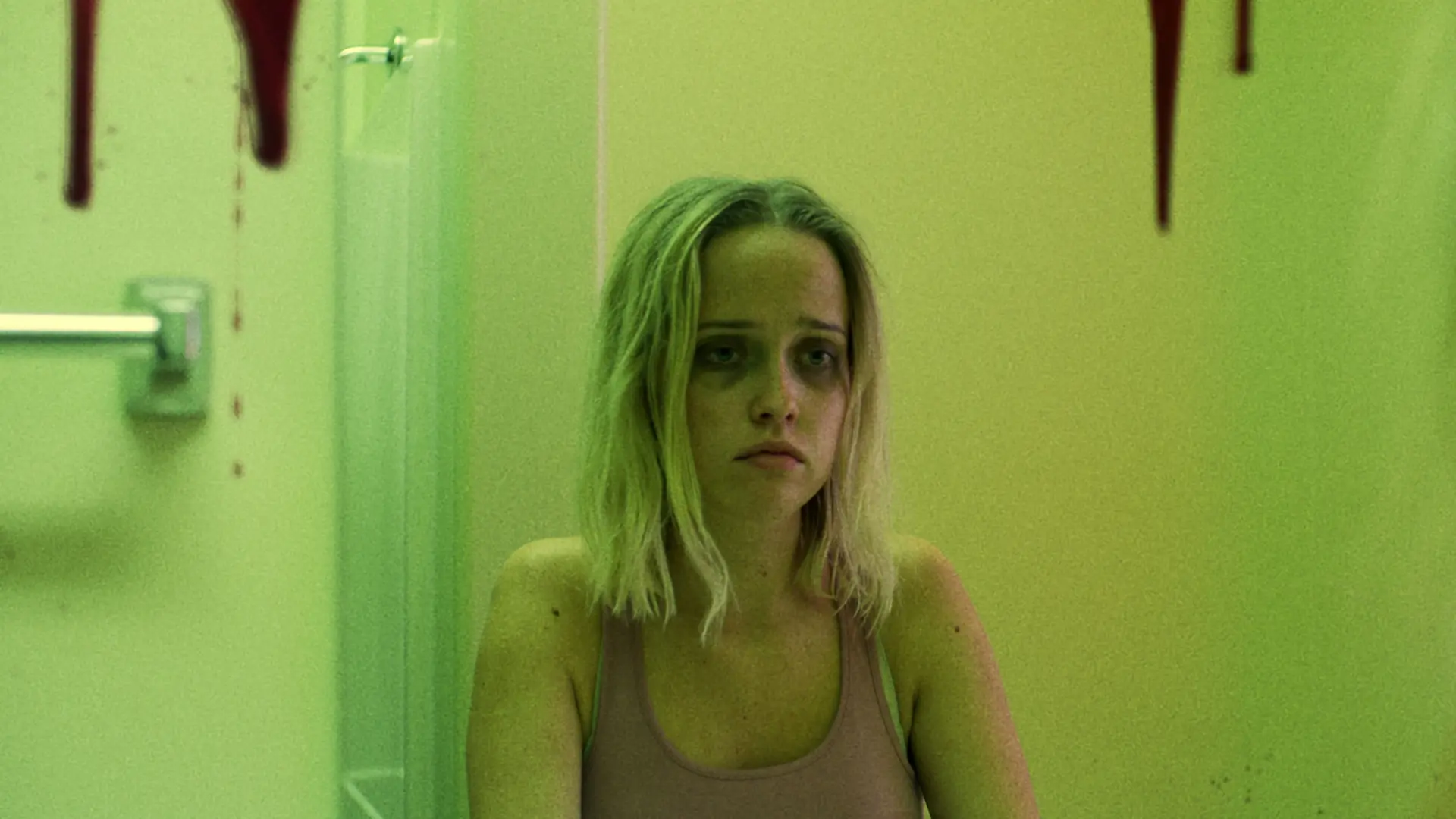
The chaotic style, blending what Marcy experiences with what she thinks she does, reminded me of 1408, though Bright Hill Road is much slower in building up its assault on the senses. That slow-burning ascent of madness may feel too slow to some viewers, though I found it apt: a person going through an empty, in-between period may easily feel over-sensitive to anything off-kilter, and (especially) a slight uncertainty of whether one has imagined something can be enough to make any mood worse. The whole film has the tone of a dream that’s worsening in fits and starts, and Robert Cuffley – responsible for both direction and music – has done a great job with delivering shivers up my back.
I’ve actually only got one complaint about Bright Hill Road: just as Marcy couldn’t tell whether there was something going on in the boarding house, or if she was actually losing her mind, I was increasingly nagged by a feeling that the film was going down the same direction as several other films and TV episodes I’ve seen. I couldn’t be sure if writer Susie Moloney was going to confound my expectations or continue in line with them, so I kept on watching out for a change of direction; was the writer messing with me, just as Marcy felt she was being messed with? As it turned out when the film reached its end, it still felt like a familiar old story told in a different way; but yet I still couldn’t be sure, because the ending wasn’t quite as clear to me as I am comfortable with.
Anyway, Bright Hill Road is definitely an uneasy tale to watch, just as effective as those old films it reminded me of; and I’m loathe to name any in case that gives everything away (perhaps I’ve been exposed to tales you haven’t). It’s not the kind of horror that’s full of screams and violence, but rather the sort often called “psychological thriller”. There’s plenty to admire (I’m thinking of the music again), but it just didn’t hold any surprise for me.

